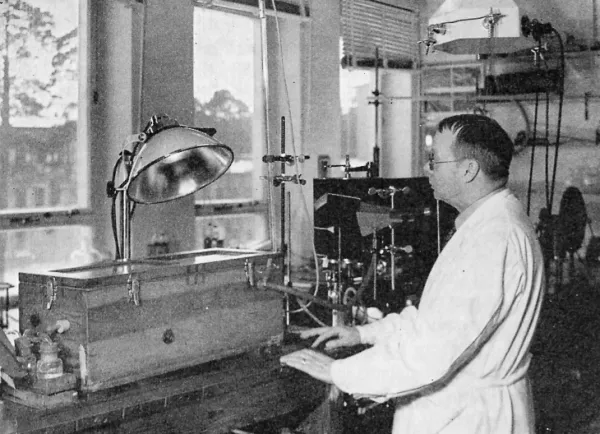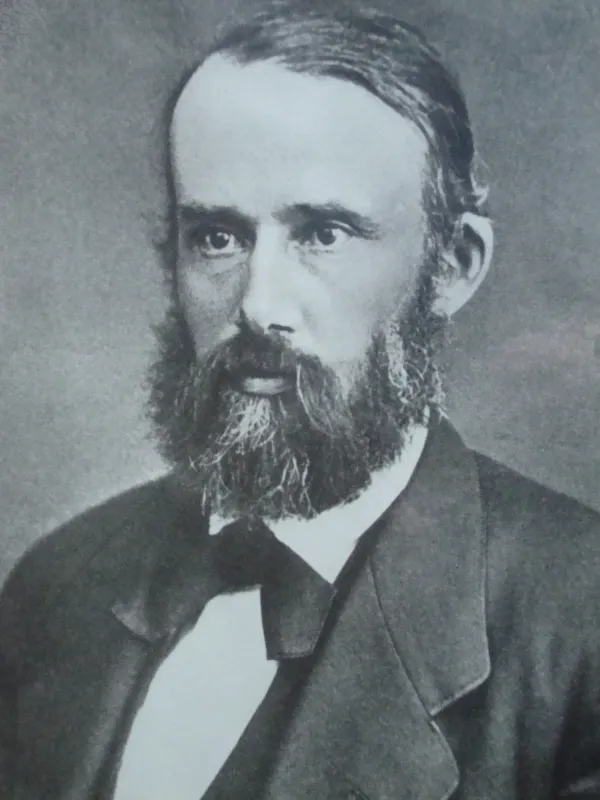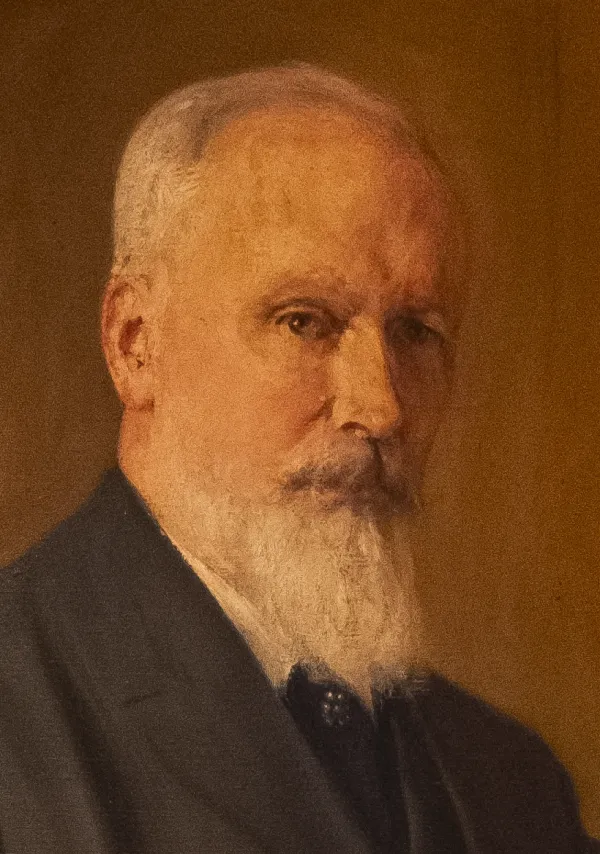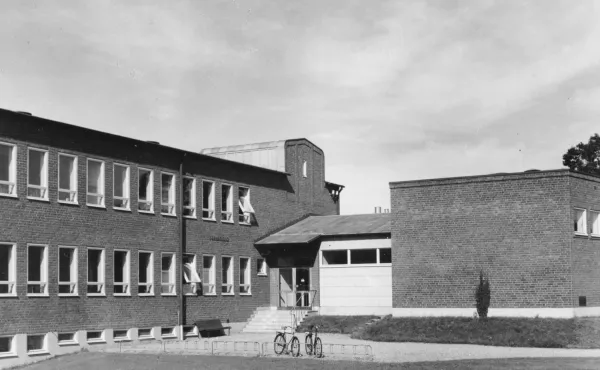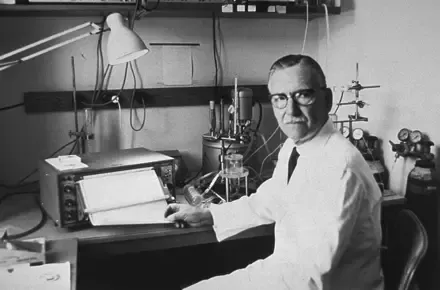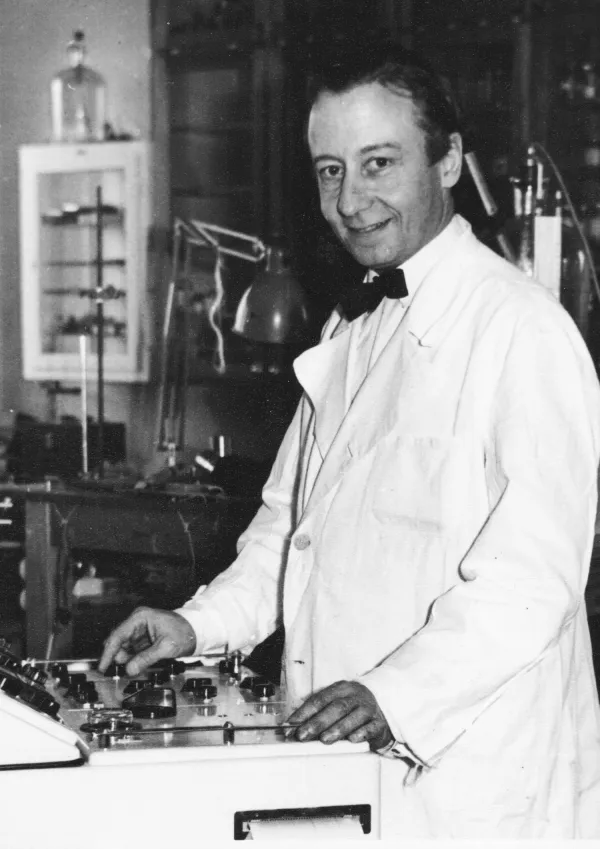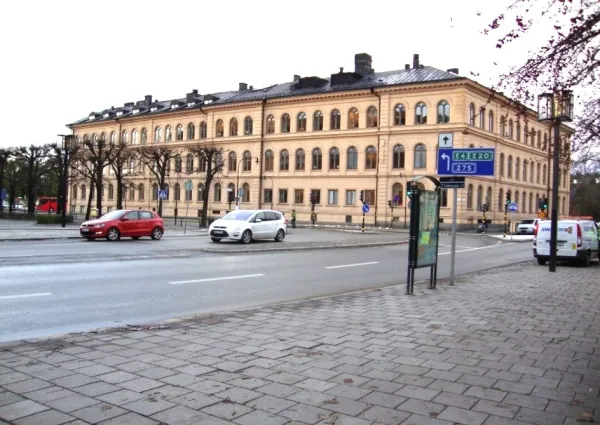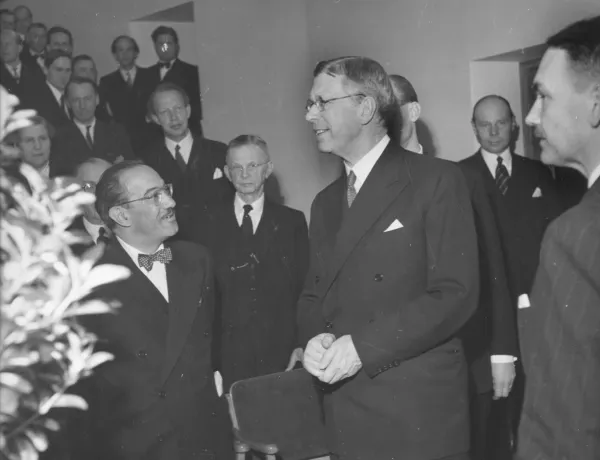FyFa's history
The Department of Physiology and Pharmacology, FyFa, has a history that goes way back to the 19th century. Pioneering research, a Nobel prize and mergers of departments are all landmarks throughout history.
Timeline
1810 KI is founded
1866 The Department of Pharmacology is founded
1874 The Department of Physiology is founded
1949 The departments are inaugurated in Solna
1970 Ulf von Euler is awarded the Nobel Prize in Physiology or Medicine
1993 Merger of the Departments of Physiology and Pharmacology - FyFa
2005 Merger with Anaesthesiology and Intensive Care Medicine
2018 FyFa moves to Biomedicum
We start with the older physiology and pharmacology. When Karolinska Institutet was founded in 1810, there was no specific teaching in these subjects. Apart from the subject of anatomy, there were no formal departments at KI at that time; the departments were created gradually. The Department of Pharmacology was founded in 1866 and the Department of Physiology was founded in 1874, when Christian Lovén became the subject's first professor.
In 1895, Carl Gustaf Santesson was appointed professor of pharmacodynamics and pharmacognosy, later pharmacology.
Research in the first half of the 20th century
Göran Liljestrand, professor from 1917 in both physiology and pharmacology at different times, stands out as a particularly important person in the development of FyFa's research in the period leading up to the Second World War. He created experimental research based on animal models and came to foster several researchers such as Ulf von Euler, later professor of physiology, and Leonard Goldberg, professor of theoretical alcohol research. Liljestrand was Professor of Pharmacology until 1952.
Moving from Norr Mälarstrand to Solna
Until the mid-1940s, KI was located on Kungsholmen, near Stockholm City Hall and the former Serafimerlasarettet. During the midlate 1940s, construction of the current campus in Solna began and in 1948/1949 buildings were completed for the departments of physiology and pharmacology.
With some pomp and circumstance, the two institutions were jointly inaugurated on 23 April 1949. In 2024, FyFa will celebrate its 75th anniversary. The inauguration in 1949 was attended by Crown Prince Gustaf Adolf, later King Gustaf VI Adolf, Nobel Prize winners and other prominent people.
Research expands after the Second World War
Since Sweden was spared from the war, research in the 1940s and 1950s and later was conducted under stable conditions. Thanks to contributions from the USA in particular and the establishment of the Medical Research Council (Medicinska forskningsrådet) in 1945, research was able to expand.
Physiological research
Ulf von Euler became professor in physiology in 1939 and carried out pioneering studies on adrenaline and noradrenaline. He finally proved in 1946 that noradrenaline was the transmitter that occurredpresent in the nerve endings and not adrenaline. He initiated research on prostaglandins and leukotrienes, which was then continued by other researchers at the physiology department and at KI. In 1970, Ulf von Euler was awarded the Nobel Prize in Physiology or Medicine.
The professorship in physiology was later doubled and Carl Gustaf Bernhard was awarded the second professorship in 1948. He continued with studies of the visual system and the development of the central nervous system together with several colleagues. In the 1970s, Bengt Andersson and David Ottoson became professors, as well as Per Hedqvist and Åke Flock in the 1980s.
Pharmacological research
Börje Uvnäs, a pharmacologist from Lund, succeeded Liljestrand as professor in 1952. He initially studied the neuronal control of vasodilatation, but his research quickly expanded to include histamine release and allergic reactions, gastric juice secretion, prostaglandins, etc. Professors Sune Rosell, Bertil Fredholm and Urban Ungerstedt established their own groups in the 1970s. Later, interest in neuropeptides increased, with Professor Jan Lundberg, among others, studying the role of these peptides in the autonomic nervous system. In the 1980s, Torgny Svensson, who succeeded Uvnäs as professor, established the research in neuropsychopharmacology.
The new department FyFa is created in 1993
At the reorganisation of KI in 1993, when 150 departments became 30, the Department of Physiology and Pharmacology (FyFa) was formed. This can be seen as a reflection of the departments' previous close relationship on Kungsholmen and of the conditions that existed in the late 1800s and early 1900s, when many researchers some periods held positions in physiology and other periods in pharmacology. The head of the new department was Professor Per Hedqvist. The administration was reorganised with an administrative head and staff with various special competences were gradually recruited.
At the start of the new department, research was conducted in nearly 30 research groups in areas such as signal transduction, neurotransmission, neuropsychopharmacology, pain, microvascular mechanisms, fluid balance, inflammation, cardiovascular and respiratory control and various aspects of muscle physiology and mechanoreceptors, hearing, etc. Mediators and transmitters of particular interest in various contexts in these studies included adenosine, neuropeptides, monoamines, prostaglandins, leukotrienes, nitric oxide (NO), and others.
New groups are recruited from 1993 onwards
In the early 2000s, several new groups were recruited in areas such as diabetes, circulation, pain, muscle and exercise physiology, and several larger and smaller groups moved to FyFa. In 1998, Harriet Wallberg Henriksson received a professorship in physiology and established a group for the study of diabetes. In 2005, Magnus Ingelman Sundberg's group focusing on pharmacogenetics moved from IMM to FyFa and at the same time the academic part of the Anaesthesia and Intensive Care Clinic at Karolinska University Hospital in Solna joined the department. Additional groups have been recruited to FyFa in recent years with research in various fields. In 2018, all preclinical departments moved to Biomedicum.
In 2022, the current Head of Department, Professor Sophie Erhardt, took office. Currently, the department has about 400 active and affiliated employees in about 50 research groups.

